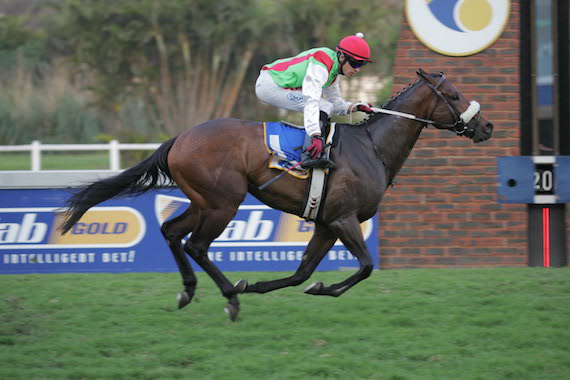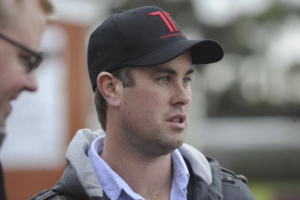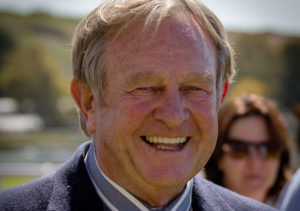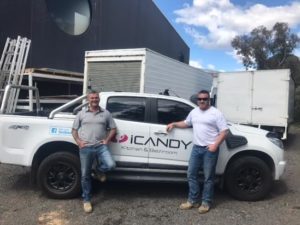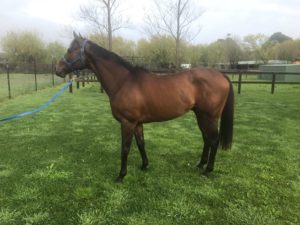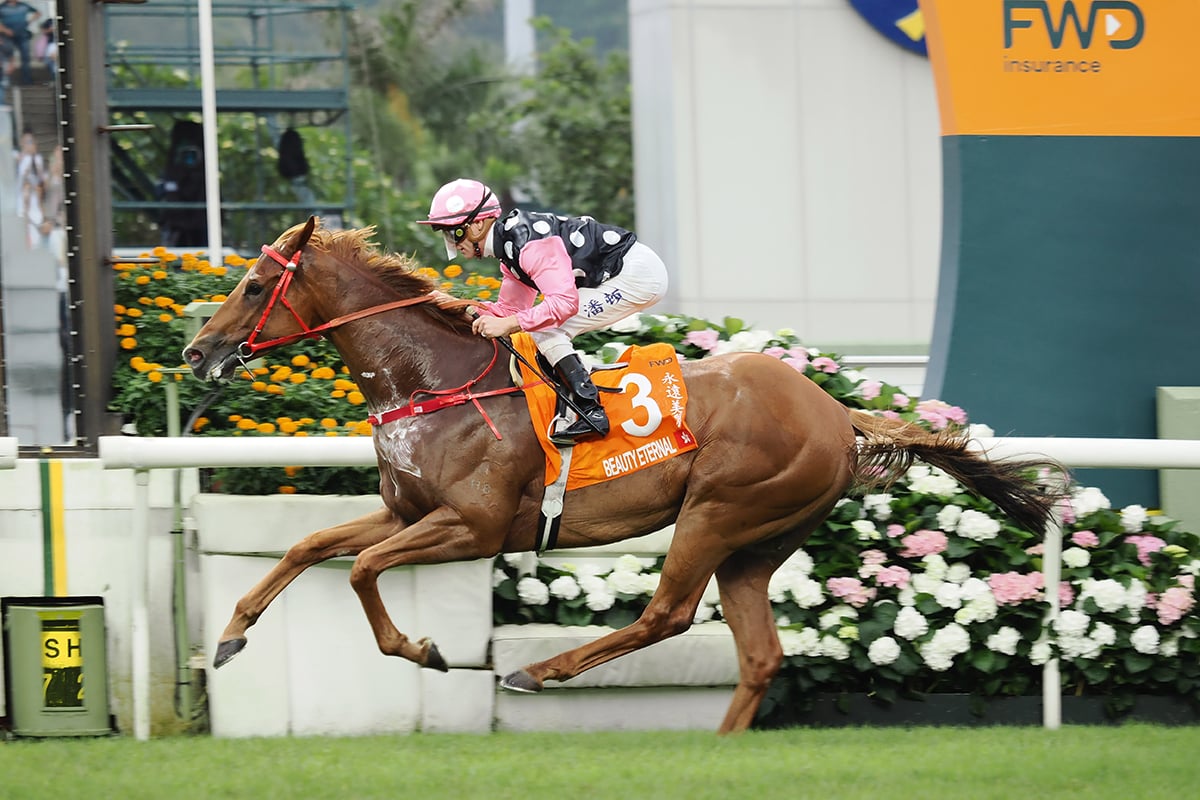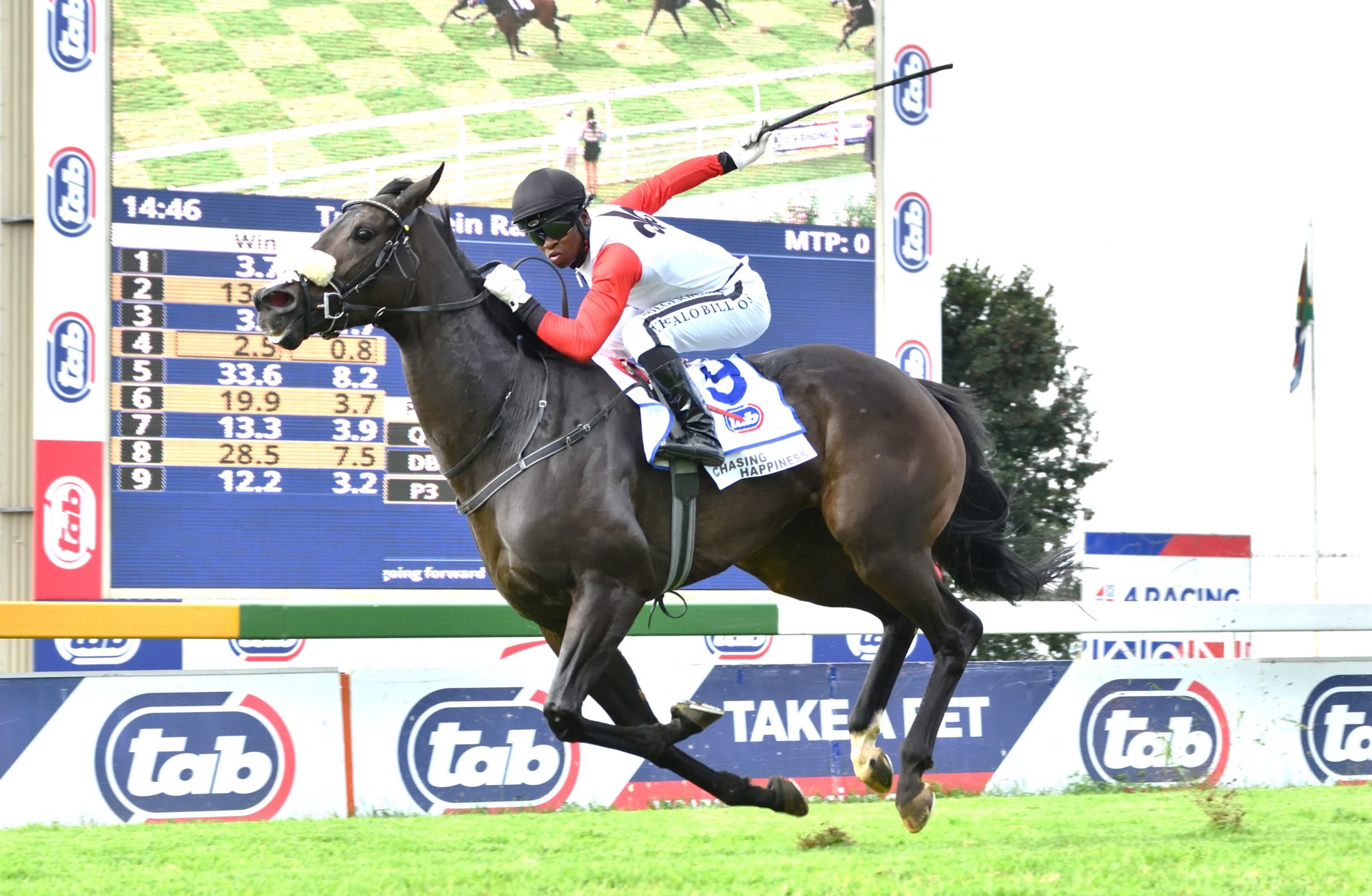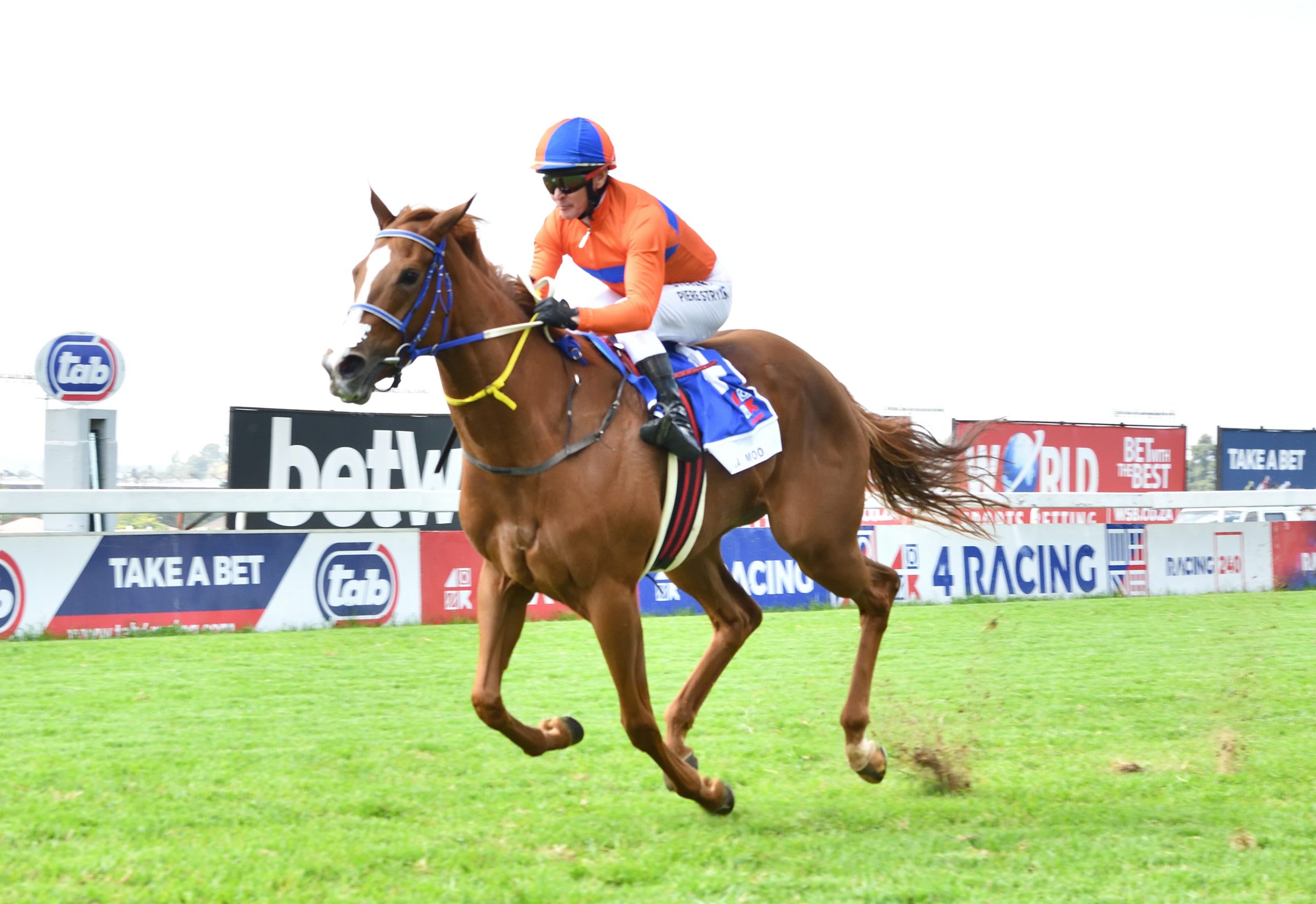“The real troubles in your life are apt to be things that never crossed your worried mind, the kind that blind side you at 4 PM on some idle Tuesday,” wrote the Chicago Tribune’s Mary Schmich. Fortunately, as they are two sides of the same coin, the real joys in your life are apt to work the same way.
Just occasionally you wake up and everything is dialled up a notch in the right direction. The sun shines brightly, the birds sing sweetly and all is well in the world. It is even sweeter when they happen on an ordinary, unexpected midweek afternoon.
So it was that I clicked a link to the website of Shea Eden, a trainer from Cranbourne, on the outskirts of Melbourne. The link was to Shea’s ‘Tried Horse Challenge’ and his post on a 7yo gelding called King’s Bay in particular. The reason for my interest was the (SAF) suffix at the end of the horse’s name. Grabbing hold of that little stub led to an unexpectedly fun story and one that has hopefully not yet run its course.
About Shea
Shea has a rather interesting back story. He speaks in the clipped, quick- fire Aussie vernacular and describes himself as “a fair bit different to most trainers in the industry.” Shea grew up on a farm, surrounded by horses, eventually going into the building trade and becoming a carpenter. However, the love of horses stuck and in his spare time, he helped out a local stud, Lauriston Farm, with starting young horses under saddle.
As Lauriston’s operation grew, so did Shea’s interest and involvement. He already had a suitable property near the beach, “One thing led to another and I decided to go into breaking in full time.” Along with the breaking in came spelling and pre-training and Shea was soon producing horses for the likes of Colin Little, Michael Kent and Mick Price. When that business grew, and more importantly, some of his pre-trained horses – often older individuals that had come to him with issues –went on to win races, it gave him a real sense of satisfaction and achievement. “Doing what we were doing really worked for these older horses and it got to point where I could see myself being able to make a real living out of it.”
Applying for an amateur or ‘picnic’ license, Shea started out training for himself and immediate family. “We had success quite quickly. We were winning premierships, I was the winning trainer of certain clubs, and winning a couple of picnic cups and I realised there was an opportunity to get hold of horses that weren’t quite cutting it with the big stables, or had problems that other people didn’t have the time and resources to sort out. These horses often responded well to our method of training and we were able to get a few of them back to winning form.”
Shea took the plunge and took out his professional license in 2009 and now has two stables, one in Cranbourne (a semi-city location) and the beach stable at Corinella, which gives them a very useful additional string to their bow. Shea explains, “The Corinella stable plays a huge part in our business. It’s on 40 acres, we‘ve got paddocks and we’re right near the beach. Horses come to the farm and spend time in the paddock straight after a race and they go to the beach the next day, which I think is great, not only physically, but also mentally.” The beach base also works well for horses that don’t cope with the hustle and bustle of the city base.
“We’re finding with that and the training method we’re using, we’re able to keep horses in work a lot longer and that’s obviously because they’re a lot more mentally fresh and are always doing something different.”
Although the stable now has clients who buy in untried young stock, Shea still enjoys trying to turn around ‘pre-loved’ horses in something he calls ‘the tried horse challenge’. “Older horses are the reason my business became so successful and it’s something I’ve always been passionate about. Without being bred into the industry if you like, I had to make my own way and that’s the way I did it. You never forget where you’ve come from.”
Which brings us to King’s Bay, who turned up on Shea’s website as part of the tried horse challenge as a 7 year old and earned them a call from me.
The early years
The next part of the story was mapped by a telephonic tour around the country, starting with Doug Campbell, who bred and trained King’s Bay in KZN.
King’s Bay is a Sugar Hill homebred by King Of Kings out of Rose Bay (who Doug raced and still owns). He couldn’t sell him for R60k as a yearling, so initially ran the colt himself and he was thrilled to hear that the horse had surfaced again.
“We were very reluctant to sell him,” he recalls, “but they made such a huge offer we couldn’t turn it down. He went to Singapore and had one trial and did a tendon. It was very disappointing because he’d never been lame here at all.”
King’s Bay made his track debut on 9 December 2012 over 800m at Clairwood. “Gavin van Zyl had a Var colt that had been backed to odds on,” remembers Doug. “We were just giving our horse a run and he came through to finish second, with the third horse 6 lengths behind him. Gavin approached me afterwards to ask whether we’d consider selling and offered me R250k. The next day he rang back to say there had been a mistake and offered R150k, so I said forget it. But after that debut run I managed to get a syndicate together.”
King’s Bay then won three in a row, including the non black type Sentinel Stakes and travelled to Joburg for the 2013 Gr1 SA Nursery, where he finished 5th behind Willow Magic and Red Ray. Back in KZN, he reeled off another 3 wins in a row and then the connections received an offer they couldn’t refuse.
“Robin Bruss came with an offer of R2,5 million, so we did the deal. It was sad for us and there were a lot of tears when he left. He was very special,” he reflects.
Doug still has the dam and several subsequent foals all of which have been useful, but by his own admission, “none that look quite like King’s Bay.”
The big price tag brought a host of fun stories. With his portion of the commission, King’s Bay’s groom was able to pay his lobola and get married. One of the syndicate partners had lost a lucrative contract and the sale helped save his business. So all in all, King’s Bay meant a great deal to his connections, who were all thrilled to have found him again after so many years and excitedly shared the pics Shea so kindly sent on. One of the syndicate members, who has subsequently relocated to Australia, may well try and visit his old friend.
Ground-breaking Sale
Next the baton passes to Robin Bruss who brokered the purchase for the China Horse Club, which was just getting established in 2013. “The general manager of the China Horse Club was Darley Flying Start graduate, Eden Harrington. I was flown to Ireland to lecture on how to become an agent and when graduates were assigned to do job shadowing, Eden was sent to me. It was a good connection, particularly when he subsequently joined the China Horse Club. I went to all their inaugural meetings and arising from that, I introduced them to South Africa and King’s Bay was their first South African purchase. Unfortunately he got caught up in the quarantine quagmire and it took forever to get him out of the country. They decided to start him in Singapore and see where to head from there, but before he had his first start, he damaged a tendon and they gave up on him, which was a disappointment. It’s amazing that he’s surfaced all these years later. It’s a bit unusual to bring a horse back at his age, but it would be nice if he could win as it would vindicate buying him in the first place.”
The China Horse Club have subsequently been back to South Africa, have bought extensively at CTS and have horses in training here now. “As things open up in China, it may end up being a conduit in time to come,” muses Robin.
The Australian Chapter
From Singapore, King’s Bay was shipped to Australia and offered for sale on a bloodstock sale website. This is where we meet Canberra cabinet makers and racing enthusiasts, Alex Creighton and Daniel Riley, who owned a hobby farm and wanted to establish a small breeding operation. Not liking the costs of service fees, they decided to buy their own stallion which led them to King’s Bay. The China Horse Club were asking $10,000, they offered $1,000 and they got him, borrowing a float and driving out to Adelaide to collect him themselves.
Not being terrifically well-versed in the art of animal husbandry, they let their hapless new purchase loose in a paddock with one of their mares, who was in no mood to be trifled with and kicked him right off his feet. A few anxious moments and a vet visit to sort out an enormous haematoma later and the lads wisely opted to geld him.
A few months later, seeing King’s Bay haring around his paddock, the lads wondered idly whether he might have any racing left in him and dialled Shea. To his credit, he was up for the challenge and told them to chuck him on a truck and he’s see what he could do.
Being out of work since 2013 as well as being a windsucker, King’s Bay did not arrive in Cranbourne in great shape. “It’s one thing coming back from injury, another when they are in poor condition,” notes Shea, “My wife Miranda is pretty passionate as well and spent a lot of time on the horse, getting him back on his tucker and stopping him from windsucking. He put condition on quicker than we expected and so the journey began.”
King’s Bay progressed to an 800m barrier trial at the Cranbourne Training Centre on 9 October 2017 (finishing 6th out of 6) and then took his place in a sprint at Moonee Valley last Friday, finishing just over 4 lengths back in 6th place and so far things are going well.
Shea reports, “He’s showing no signs at the moment of any unsoundness. Tendon injuries can be a ticking time bomb, but there certainly is hope at the moment.”
And hope, after all, is what racing is about. Especially on unexpected midweek afternoons.


